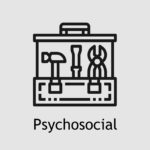A drug is a chemical substance that acts on the brain and nervous system, changing a person’s mood, emotion or state of consciousness. Drugs are often classified by the effect they have.
Stimulants, such as cocaine, make people feel full of energy. Depressants (or sedatives), such as heroin, make people feel relaxed. Hallucinogens, such as LSD, make people see, feel or hear things that are not real. Drug or substance misuse is when a person regularly takes one or more drugs to change their mood, emotion or state of consciousness.
“It doesn’t mean they aren’t after you”: sexual minorities and paranoia

Sarah Carr explores a recent cross-sectional study on sexual minority status and symptoms of psychosis, which looks at the role of bullying, discrimination, social support and drug use.
[read the full story...]









